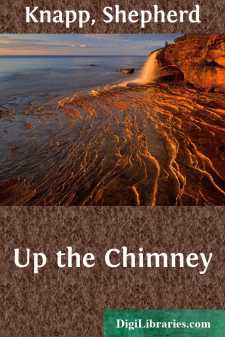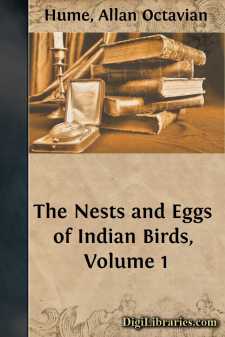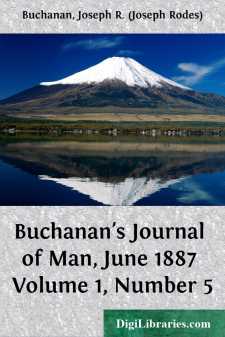Categories
- Antiques & Collectibles 13
- Architecture 36
- Art 48
- Bibles 22
- Biography & Autobiography 813
- Body, Mind & Spirit 142
- Business & Economics 28
- Children's Books 17
- Children's Fiction 14
- Computers 4
- Cooking 94
- Crafts & Hobbies 4
- Drama 346
- Education 46
- Family & Relationships 57
- Fiction 11829
- Games 19
- Gardening 17
- Health & Fitness 34
- History 1377
- House & Home 1
- Humor 147
- Juvenile Fiction 1873
- Juvenile Nonfiction 202
- Language Arts & Disciplines 88
- Law 16
- Literary Collections 686
- Literary Criticism 179
- Mathematics 13
- Medical 41
- Music 40
- Nature 179
- Non-Classifiable 1768
- Performing Arts 7
- Periodicals 1453
- Philosophy 64
- Photography 2
- Poetry 896
- Political Science 203
- Psychology 42
- Reference 154
- Religion 513
- Science 126
- Self-Help 84
- Social Science 81
- Sports & Recreation 34
- Study Aids 3
- Technology & Engineering 59
- Transportation 23
- Travel 463
- True Crime 29
Sort by:
CHAPTER I LANDING AT HAVRE—TORTONI'S—FOLLOWTHE TRAM LINES—ORDERS FOR THE FRONT Gliding up the Seine, on a transport crammed to the lid with troops, in the still, cold hours of a November morning, was my debut into the war. It was about 6 a.m. when our boat silently slipped along past the great wooden sheds, posts and complications of Havre Harbour. I had spent most of the twelve-hour trip...
more...
I With the publication of his first book, This Weary World, Abner Joyce immediately took a place in literature. Or rather, he made it; the book was not like other books, and readers felt the field of fiction to be the richer by one very vital and authentic personality. This Weary World was grim and it was rugged, but it was sincere and it was significant. Abner's intense earnestness had left but...
more...
THE GENIUS TO BE LOVED In the history of the last two thousand years there is but one Person who has been, and is supremely loved. Many have been loved by individuals, by groups of persons, or by communities; some have received the pliant idolatries of nations, such as heroes and national deliverers; but in every instance the sense of love thus excited has been intimately associated with some triumph...
more...
by:
Shepherd Knapp
The Introduction Before the curtain opens, MOTHER GOOSE comes out, and this is what she says: Good evening, dear children. I see you are all expecting me to show you a Christmas Play. Well, I have one ready, sure enough. And now let me see, what shall I tell you about it? For one thing it will take place on Christmas Eve, and then it will be all about Christmas, of course. The first scene will be in...
more...
by:
Paul Carus
ACT I. [A tropical garden in Kapilavatthu, in the background mountains, at a distance the snow-capped peaks of the Himalayas. On the right near the front a marble bench surrounded with bushes. Further back the palace entrance of the Raja's residence. Above the entrance a balcony. On the left a fortified gate with a guard house; all built luxuriously in antique Indian style.] Present: Suddhodana,...
more...
LETTER 394. TO MR. MOORE. "Ravenna, October 17. 1820. "You owe me two letters—pay them. I want to know what you are about. The summer is over, and you will be back to Paris. Apropos of Paris, it was not Sophia Gail, but Sophia Gay—the English word Gay—who was my correspondent. Can you tell who she is, as you did of the defunct * *? "Have you gone on with your Poem? I have received the...
more...
AUTHOR'S PREFACE. I have long regretted my inability to issue a revised edition of 'Nests and Eggs.' For many years after the first Rough Draft appeared, I went on laboriously accumulating materials for a re-issue, but subsequently circumstances prevented my undertaking the work. Now, fortunately, my friend Mr. Eugene Gates has taken the matter up, and much as I may personally regret...
more...
In preparing maps showing the geographic distribution of North American mammals we have found in the literature conflicting statements and questionable identifications, which have led us to examine the specimens concerned with results as set forth below. Our studies have been aided by a contract (NR 161-791) between the Office of Naval Research, Department of the Navy, and the University of Kansas....
more...
The Most Marvellous Triumph of Educational Science. In the dull atmosphere which stagnates between the high walls of colleges and churches wherein play the little eddies of fashionable literature, which considers the authorship of an old play more interesting and important than the questions that involve the welfare of all humanity or the destiny of a nation,—an atmosphere seldom stirred by the...
more...
by:
John Burroughs
INTRODUCTION The eight essays in this volume all deal with the home region of their author; for not only did Mr. Burroughs begin life in the Catskills, and dwell among them until early manhood, but, as he himself declares, he has never taken root anywhere else. Their delectable heights and valleys have engaged his deepest affections as far as locality is concerned, and however widely he journeys and...
more...











